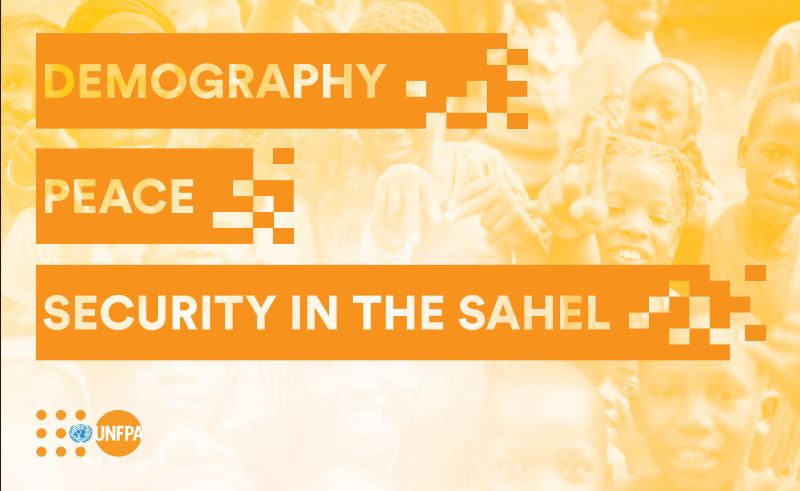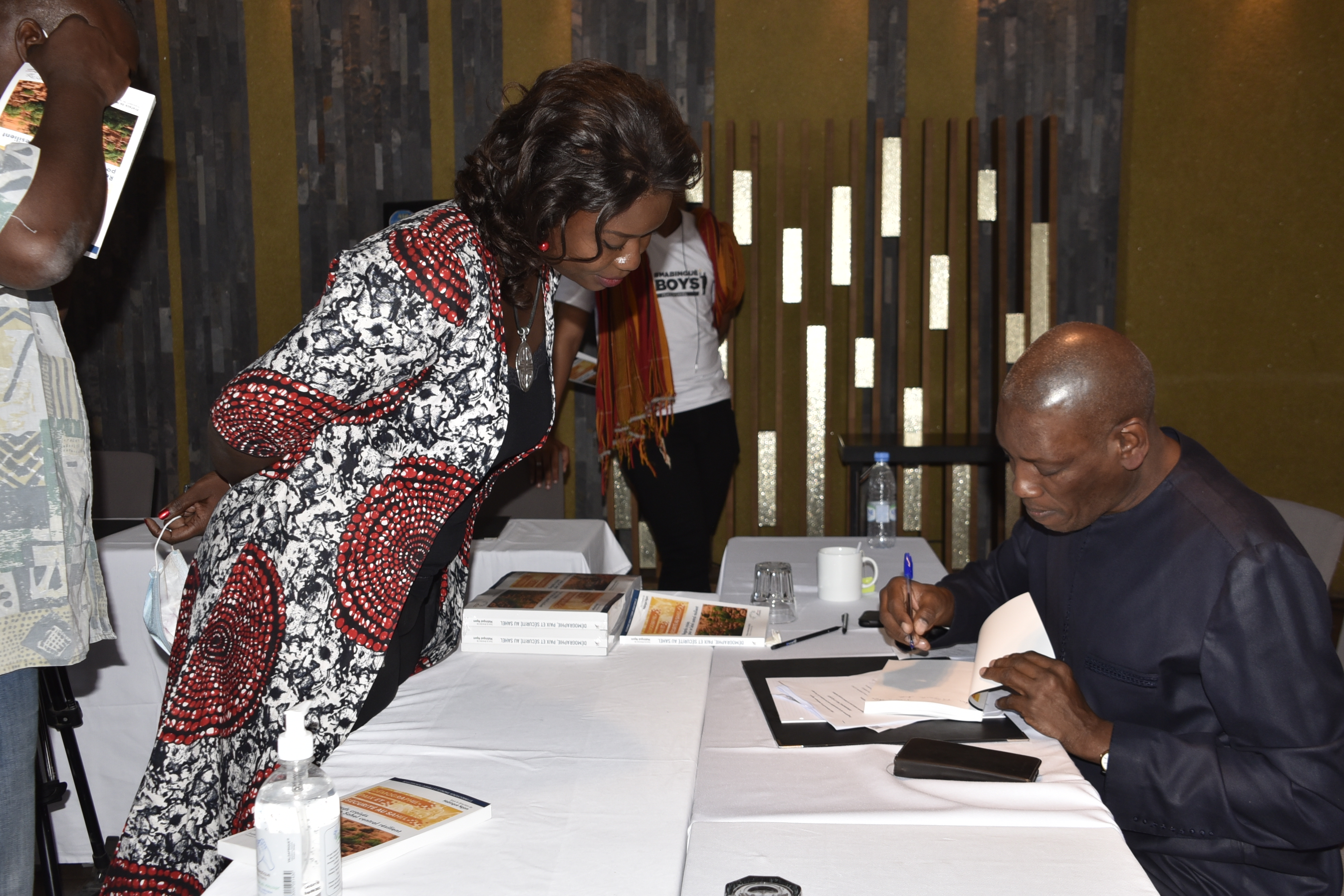
The United Nations Population Fund Regional Office for West and Central Africa (UNFPA-WCARO), organized on 2 December 2020 a high-level virtual Symposium on Demography, Peace and Security in the Sahel under the chairmanship of the President of the Republic of Niger, Mouhamadou Issoufou, represented by his Chief of Staff Mr. Ouhoumoudou Mahamadou. The symposium was the culmination of a series of studies on the relationship between demographic change and the occurrence of armed conflicts in order to achieve a lasting solution to such conflicts.
In his speech, Mr. Ouhoumoudou Mahamadou deliberated on how to reconcile strong demographic growth with the imperatives of poverty reduction and the achievement of sustainable development goals. “It is with good reason that some analysts speak of a demographic explosion; now is the time for action.” Mr. Ouhoumoudou remarked.
In his introductory remarks, the Regional Director, Mr. Mabingué Ngom affirmed “the need to link peace and security to demography, particularly as the search for solutions to fragility and insecurity in the Sahel becomes imperative.”
The symposium was preceded by national consultations in Mali, Niger and Burkina Faso on November 19, 23 and 24 respectively, to exchange with States on the main conclusions and recommendations resulting from the guidance notes and scientific papers on Demography, Peace and Security produced with the assistance of the Peace Research Institute Oslo (PRIO) and National School of Statistics and Economic Analysis (ENSAE) of Dakar. The aim is to highlight the security implications for each country and their dependence on demography.
Preliminary studies have been carried out since the Bamako Peace Forum, in particular by ENSAE and PRIO, demonstrating clear linkages between demographic dependence and security risk, which makes the Sahel a sensitive area at risk. The publications consist of a “white paper” on the Sahel, three monographic studies on Burkina Faso, Mali and Niger, two statistical analysis reports on the relationship between demographic factors and insecurity in the Sahel, and a summary book which consolidates all of these scientific productions. All the publications are available on this link: https://wcaro.unfpa.org/en/publications
Following the symposium, the Regional Director of UNFPA Mr. Mabingué Ngom launched the synthesis book, titled: "Demography, peace and security, for a resilient central Sahel" on December 3, which was produced under his supervision. Mabingué Ngom invites the actors of the international community to “go beyond the symptomatic treatment of the crisis in the Sahel to understand the complex phenomena which are the origin of it, and find ways and means to remedy the evil that is plaguing this part of Africa and which continues to worsen. " 
“Demography, Peace and Security: Crossed views for a resilient central Sahel” seeks to answer the burning question of whether demographic dynamics are likely to promote development, peace and security or, on the contrary, put them in peril. In his preface, H.E M. Mahamadou Issoufou, President of the Republic of Niger affirms: "the book deals with an issue which is, strictly speaking, vital since it concerns Sahelian demography. The post-face is from Mr. Saïdou Oua, Director General of the Liptako-Gourma Region Authority (LGA).
The book, which has been reviewed by a scientific committee, is also available online from UNFPA, along with all the monographs produced. The DPS Blog, launched on September 21, 2020 on the occasion of the International Day of Peace, also offers good visibility of all the productions.
The Symposium and the work of producing the book brought together eminent personalities from academia and research institutions as well as representatives of G5 Sahel member states, United Nations agencies, multilateral and bilateral organizations, civil society organizations and members of the intergovernmental community, but also partners such as The World Bank, African Development Bank, and ECOWAS. These participants thus agreed on the importance of developing policies that make it possible to tackle the root causes of insecurity in the Sahel, notably by reducing demographic dependence.


